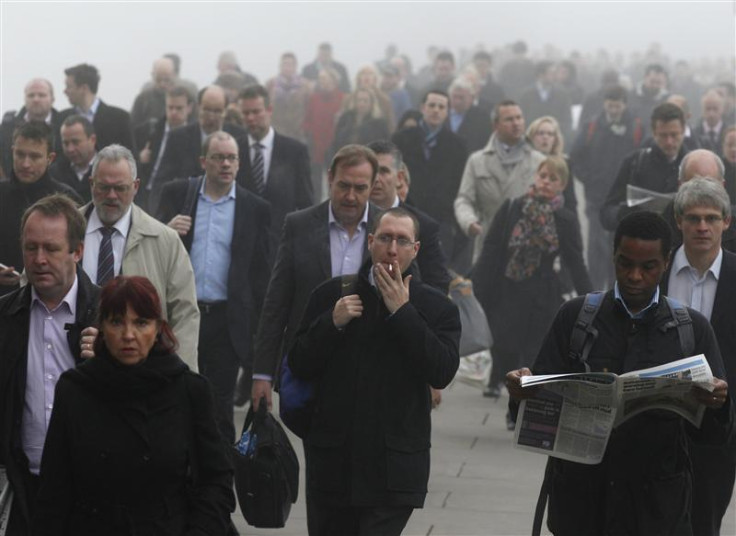UK: Fast population growth will crank up pressure on Britain's creaking infrastructure

Britain's ageing population will grow by 9.6 million people in just a quarter of a century, according to official figures, placing an enormous strain on the country's transport, health and education.
The Office for National Statistics (ONS) projects the UK population will hit 73.3 million people in 2037, a 15% jump from an estimated 63.7 million in 2012. It will pass the 70 million mark in 2027. A natural increase in population – meaning more births than deaths – will account for 57% of the growth by 2037. The rest will be from net migration.
"By historical standards that's very high population growth. Essentially everything has to be scaled up to the extent that most things depend on the numbers of people. It's difficult to say that it can be impossible to cope with, because it'll put pressure on [but] to some extent people will have to respond to those pressures," said Professor Michael Murphy, a population expert at the London School of Economics.
The UK, currently enduring austerity measures brought in by the coalition government five years ago, is already facing a housing shortage with building work failing to keep up with demand, pensions crisis and funding shortage for its NHS. Schools, meanwhile, are struggling to fund enough space and places for pupils.
And the population will continue to age. The average age was 39.7 years in 2012 but will rise to 42.8 by mid-2037. Moreover, the number of people over 80 in the UK will more than double to six million by 2037.
This poses difficult questions for the government's pension spending because there will be fewer working age people paying the taxes needed to fund it. The state pension age is set to rise over the coming years, making people work longer before they are entitled to it. Moreover, the government has introduced auto-enrolment in workplaces, meaning all employers will have to offer private pension provision for their staff.
But in order to help fund the public spending needed to relieve the various pressure on the UK, workers will have to be imported. That 43% of the population growth will come from net migration, most of who will work and pay taxes, should ease the burden. Academic research shows that, on the whole, migrants pay more into the UK than they take out, making them net fiscal contributors.
© Copyright IBTimes 2025. All rights reserved.






















